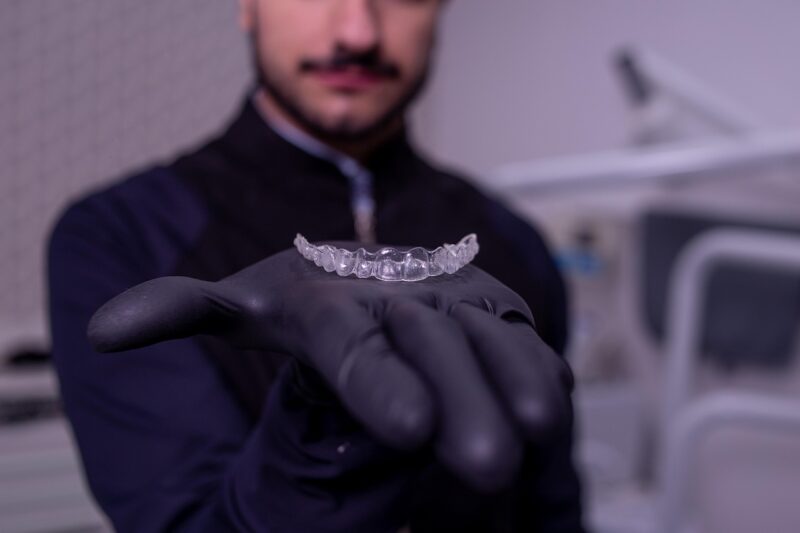
Stress is a common and unavoidable part of life, but when it becomes chronic, it can have a negative impact on our physical and mental health. Stress can affect different people in different ways, and it can lead to a range of health problems, from minor to severe. From headaches and muscle tension to heart disease, stroke, and even cancer, the effects of stress on our body can be devastating.
We will explore how stress can cause permanent damage to our body and the different ways to manage and reduce stress to protect our overall health and well-being.
Can Stress Cause Permanent Damage to Your Body?
Studies have shown that chronic stress can lead to a host of health problems, including heart disease, diabetes, and even stroke. But can stress actually cause permanent damage to your body? The short answer is yes, stress can cause permanent damage to your body.
When you experience stress, your body releases hormones such as cortisol and adrenaline. These hormones are designed to help you cope with short-term stressors, such as running from a predator or lifting a heavy object. However, when stress becomes chronic, these hormones can have negative effects on your body. Here’s how stress can permanently damage your body.
Stress Damages the Cardiovascular System
One of the most significant ways stress can cause permanent damage to the body is through its impact on the cardiovascular system. Chronic stress can lead to a number of cardiovascular problems, including high blood pressure, heart attack, and stroke. High blood pressure, also known as hypertension, is a leading risk factor for heart disease and stroke. When the body is under chronic stress, it releases hormones such as cortisol and adrenaline, which can cause the blood vessels to constrict and the heart to pump harder. This can lead to an increase in blood pressure and can damage the blood vessels over time.
Stress can lead to the formation of plaque in the arteries, which can increase the risk of heart attack and stroke. Chronic stress can also affect the heart in other ways. It can cause the heart rate to become irregular and can lead to the development of heart disease. Stress can also cause inflammation in the body, which is a risk factor for many chronic diseases including heart disease and diabetes. Inflammation can cause the blood vessels to become narrowed, which can increase the risk of heart attack and stroke.

Stress has a direct impact on the cardiovascular system by leading to unhealthy behaviors such as overeating, smoking, and alcohol consumption, all of which are major risk factors for heart disease. Stress can also cause sleep disturbances, which can lead to a number of health problems, including heart disease. Lack of sleep can increase inflammation in the body and make it harder for the heart to function properly. It’s important to note that stress can affect people differently and some people may be more susceptible to its effects on the cardiovascular system. Individuals with pre-existing conditions such as hypertension, diabetes, or a history of heart disease are at a higher risk of developing cardiovascular problems due to stress. It’s crucial to recognize the signs of stress and take steps to manage it in order to protect the cardiovascular system and overall health.
Immune System Damage
Stress can cause permanent damage to the immune system. The immune system is the body’s defense mechanism against infection and illness. When the body is under chronic stress, it releases hormones such as cortisol and adrenaline, which can suppress the immune system. This can make the body more susceptible to infections and illnesses. Chronic stress can lead to inflammation in the body, which can further weaken the immune system.
Research has shown that people who are under chronic stress are more likely to catch colds and other infections. Stress can make it more difficult for the body to fight off illnesses and can prolong the recovery time. Stress can lead to the development of autoimmune disorders, in which the immune system mistakenly attacks the body’s own cells and tissues. These conditions, such as rheumatoid arthritis, lupus, and multiple sclerosis, can be difficult to treat and can cause permanent damage to the body. Chronic stress can also affect the gut microbiome, which is an essential part of the immune system. The gut microbiome is a diverse community of microorganisms that live in the gut and help to protect the body against infections and illnesses. Stress can disrupt the balance of the gut microbiome, which can weaken the immune system.
Stress Causes Mental Health Issues
Stress can cause permanent damage to mental health. Chronic stress can lead to the development of mental health conditions such as anxiety and depression. These conditions can have long-term effects on the brain and can be difficult to treat. Stress can lead to insomnia, which can further negatively impact mental health. Anxiety is a common response to stress and can be characterized by feelings of worry, nervousness, and fear. When stress becomes chronic, these feelings can become overwhelming and can lead to the development of an anxiety disorder.
Anxiety disorders can have a significant impact on a person’s life, making it difficult to perform daily activities and can cause physical symptoms such as headaches and muscle tension. Depression is another common mental health condition that can be caused by chronic stress. Depression is characterized by feelings of sadness, hopelessness, and a lack of interest in activities that were once enjoyed. Stress can trigger depression by affecting the levels of certain chemicals in the brain, such as serotonin and dopamine. When these chemicals become imbalanced, it can lead to feelings of depression.
Stress can lead to the development of post-traumatic stress disorder (PTSD), which is a mental health condition that can occur after a person has experienced or witnessed a traumatic event. People with PTSD may experience flashbacks, nightmares, and anxiety. PTSD can have a significant impact on a person’s life and can be difficult to treat. Stress can also affect the brain’s structure and function. Studies have shown that chronic stress can lead to changes in the brain, such as shrinkage of the hippocampus, which is the part of the brain that is responsible for memory and learning. These changes can affect cognitive function, such as memory and attention, and can lead to the development of mental health conditions such as dementia.
It’s important to note that everyone responds differently to stress and some people may be more susceptible to its effects on mental health. It’s crucial to recognize the signs of stress and take steps to manage it in order to protect mental health. There are many ways to manage stress, such as therapy, medication, and relaxation techniques, which can help to reduce stress and improve mental health.
Natural Ways to Reduce Stress
There are several natural ways to reduce stress and protect your body from its negative effects. Here are some of the most effective ways to decrease your stress levels.
Exercise
One of the most effective ways to reduce stress is through regular exercise. Exercise can help to release endorphins, which are chemicals in the brain that can improve mood and reduce feelings of stress. Exercise can also help to improve sleep, which is essential for reducing stress.
Getting enough sleep is another important way to reduce stress. Sleep is essential for the body to repair and rejuvenate, and a lack of sleep can lead to feelings of stress and anxiety. Aiming for 7-9 hours of sleep per night can help to reduce stress and improve overall health.
CBD
CBD (Cannabidiol) is another natural way to reduce stress. CBD is a compound found in the hemp plant, and it has been shown to have a positive effect on stress and anxiety. CBD works by interacting with the body’s endocannabinoid system, which regulates mood, sleep, and other functions. Taking CBD oil, or low dosage of THC such as delta 8 THC, can help to reduce feelings of stress and anxiety and improve overall well-being.
Meditation and Yoga
Meditation and yoga are also effective ways to reduce stress. Meditation can help to reduce feelings of stress and anxiety by calming the mind and promoting relaxation. Yoga is a form of exercise that combines physical movement with meditation and can be an effective way to reduce stress. Yoga can help to reduce tension in the body, improve flexibility, and increase feelings of calm and relaxation. It’s important to note that these natural ways to reduce stress may not work for everyone and it’s always best to consult with a doctor or a healthcare professional before trying any new supplement or treatment.

It’s essential to find a balance that works for you, as overdoing it with exercise or meditation can also lead to stress.
Conclusion
Stress is a natural part of life, but when it becomes chronic it can have a negative impact on both physical and mental health. Studies have shown that chronic stress can lead to a host of health problems, including heart disease, diabetes, stroke, and mental health issues. These conditions can have long-term effects on the body and can be difficult to treat. However, it’s important to note that not all stress is bad, and there are ways to manage stress in order to protect the body. Regular exercise and relaxation techniques such as yoga, meditation, and CBD can be effective ways to manage stress. Finding a balance that works for you and talking to a healthcare professional can help you to manage stress and improve overall health. It’s crucial to recognize the signs of stress and take steps to manage it in order to protect the body from its negative effects.










